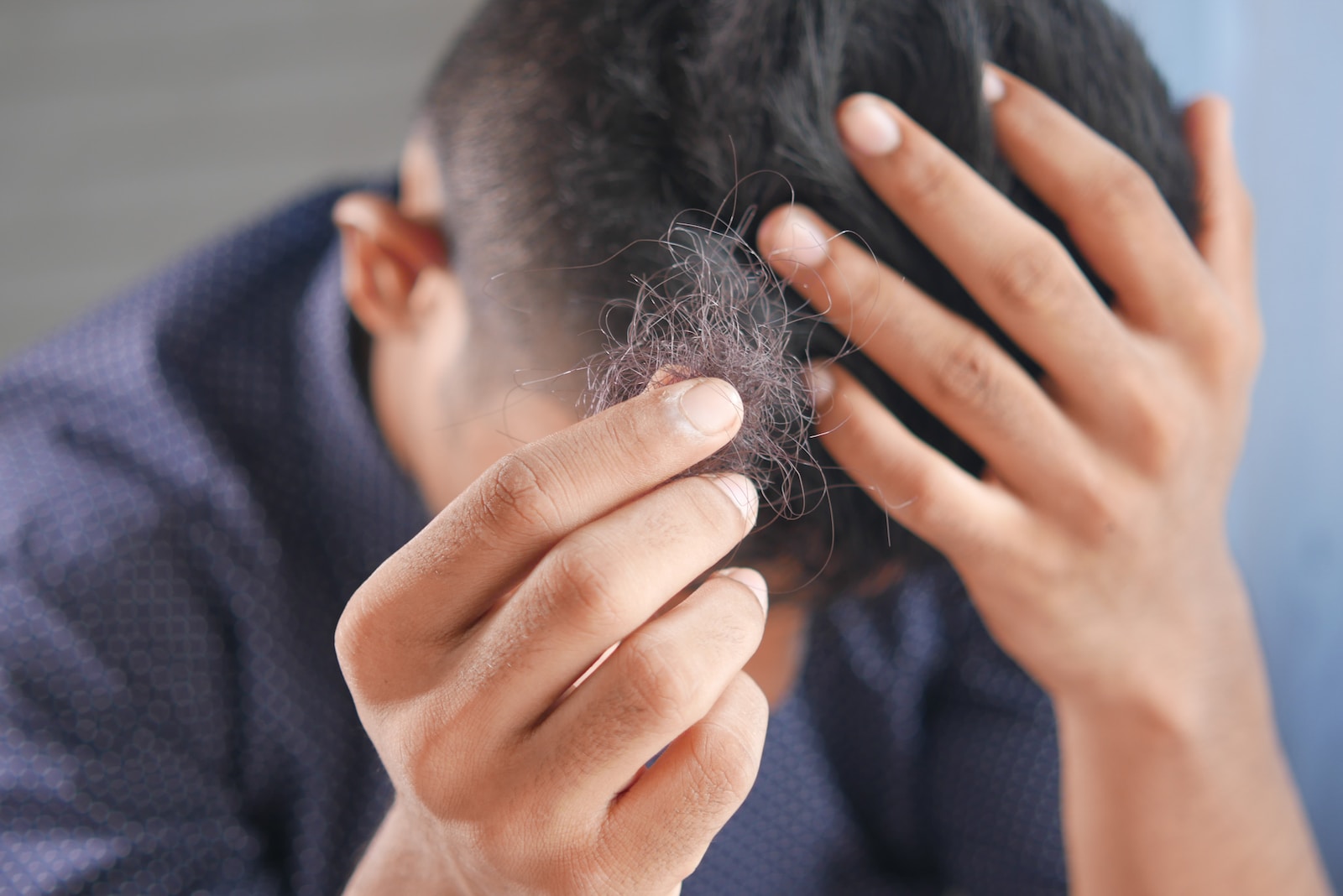
What is the Connection Between Health and Hair Loss?
Hair loss is a common concern for both men and women, and it can have a significant impact on self-esteem and overall well-being. Understanding the connection between health and hair loss is crucial in unraveling the complex factors that contribute to this condition.
Hair and Hair Loss
Hair serves as more than just a physical feature; it is a symbol of identity and self-expression. The loss of hair can lead to emotional distress and a negative body image. Recognizing the underlying health conditions that can contribute to hair loss is essential in addressing the issue from a holistic perspective.
Causes of hair loss
Hair loss can be influenced by a variety of factors, including genetics, hormonal imbalances, nutritional deficiencies, and medical conditions. By understanding the connection between these factors and hair loss, individuals can take proactive steps to address their underlying health and potentially minimize or manage the condition.
- Hormones play a crucial role in regulating hair growth cycles, and imbalances can disrupt the natural process. We will delve into conditions such as PCOS and thyroid disorders that can contribute to hair loss and discuss the influence of androgens, such as DHT, on hair follicles.
- A lack of essential nutrients, including iron, zinc, biotin, and vitamins, can impact hair growth and lead to thinning or loss. We will emphasize the importance of a well-balanced diet that provides adequate nourishment for healthy hair growth.
- Autoimmune diseases like alopecia areata can result in the immune system attacking hair follicles, leading to patchy hair loss. We will also address how chronic illnesses and scalp conditions can affect hair health and potentially cause hair loss.
Hair loss is a complex issue that can have multiple underlying causes. While some types of hair loss may be reversible, others may require ongoing management or treatment. It is important to remember that seeking professional advice from healthcare providers, such as dermatologists or trichologists, is crucial in determining the underlying cause of hair loss and developing an appropriate treatment plan.
By understanding the connection between health and hair loss, individuals can gain insight into their specific circumstances and take steps to improve their overall well-being. Remember, hair loss does not define one’s beauty or worth. Embracing self-acceptance and prioritizing overall health and self-care are essential in nurturing a positive body image and maintaining a sense of confidence, regardless of hair loss.
Hormonal Factors and Hair Loss
Hormonal imbalances play a significant role in the development of hair loss. Understanding the connection between hormones and hair follicle health is essential in comprehending the underlying causes of this condition.
Dihydrotestosterone
One common hormonal factor linked to hair loss is dihydrotestosterone (DHT). DHT is a derivative of testosterone and is known to be one of the primary contributing factors in male and female pattern hair loss, also known as androgenetic alopecia. In individuals genetically predisposed to this condition, DHT can bind to hair follicles, leading to miniaturization and shrinking of the hair shaft. Over time, this results in the production of thinner, shorter, and less pigmented hair until eventually, the hair follicles become dormant and stop producing new hairs.
Hormonal imbalances
Hormonal imbalances in conditions such as polycystic ovary syndrome (PCOS) can also contribute to hair loss. PCOS is characterized by elevated levels of androgens, including testosterone, in women. These elevated androgen levels can disrupt the hair growth cycle and lead to excessive hair shedding and thinning. Additionally, hormonal changes during pregnancy and after childbirth can also result in temporary hair loss, known as telogen effluvium. This occurs when the hormonal shifts cause a larger percentage of hair follicles to enter the resting phase, leading to increased hair shedding.
Thyroid disorders
Thyroid disorders, such as hypothyroidism or hyperthyroidism, can also impact hair health. The thyroid gland plays a crucial role in regulating metabolism and hormone production. When the thyroid is underactive or overactive, it can disrupt the normal hair growth cycle, leading to hair loss. In hypothyroidism, hair loss is often diffuse and more pronounced, while in hyperthyroidism, hair loss may be accompanied by other symptoms such as rapid heartbeat and weight loss.
Addressing hormonal imbalances that contribute to hair loss often involves medical intervention. Healthcare providers may prescribe medications to inhibit the conversion of testosterone to DHT or regulate hormone levels in conditions like PCOS. For individuals with thyroid disorders, appropriate treatment to restore thyroid hormone balance is vital.
Understanding the hormonal factors involved in hair loss helps individuals comprehend the underlying causes of their hair loss and take appropriate steps to manage the condition. By prioritizing overall health, seeking medical advice when needed, and embracing self-acceptance, individuals can focus on their overall well-being and maintain a positive body image, irrespective of hair loss.
Nutritional Deficiencies and Hair Loss
Nutrition plays a crucial role in maintaining healthy hair growth, and deficiencies in certain nutrients can contribute to hair loss. Understanding the connection between nutritional deficiencies and hair health is essential in addressing the underlying causes of hair loss.
- Iron Deficiency: Iron is essential for the production of red blood cells, which carry oxygen to the hair follicles. Insufficient iron levels can lead to anemia, causing reduced oxygen supply to the hair follicles and affecting their ability to function optimally. This can result in hair thinning and shedding.
- Zinc Deficiency: Zinc is involved in cellular metabolism, including hair follicle health. Inadequate levels of zinc can disrupt the hair growth cycle, leading to hair loss. Additionally, zinc plays a role in maintaining the structure of hair proteins, and its deficiency can affect hair strength and quality.
- Biotin Deficiency: Biotin, also known as vitamin B7, is essential for healthy hair growth. It helps convert nutrients into energy and is involved in the synthesis of keratin, a protein that forms the structural foundation of hair. Insufficient biotin levels can result in brittle hair, hair breakage, and hair loss.
- Vitamin Deficiencies: Several vitamins, such as vitamin A, vitamin D, and vitamin E, play vital roles in hair health. Vitamin A helps in the production of sebum, an oily substance that moisturizes the scalp and keeps the hair follicles healthy. Next, Vitamin D is important for hair follicle cycling and overall hair health. Vitamin E acts as an antioxidant, protecting the hair follicles from oxidative stress. Deficiencies in these vitamins can contribute to hair loss.
Addressing nutritional deficiencies often involves improving dietary intake or using supplements under the guidance of healthcare professionals.
Consuming a well-balanced diet that includes a variety of nutrient-rich foods is crucial for promoting healthy hair growth. Foods rich in iron include lean meats, leafy green vegetables, and legumes. Zinc can be found in foods like oysters, beef, pumpkin seeds, and spinach. Biotin is abundant in foods such as eggs, nuts, seeds, and whole grains. Vitamin-rich foods include carrots, sweet potatoes, fatty fish, eggs, and nuts.
By understanding the connection between nutritional deficiencies and hair loss, individuals can prioritize a well-balanced diet and ensure they are obtaining the necessary nutrients for healthy hair growth. However, it is important to note that addressing nutritional deficiencies alone may not fully resolve hair loss if there are other underlying factors at play. Seeking medical advice is crucial in determining the root causes of hair loss and developing an appropriate treatment plan.
Medical Conditions and Hair Loss
Various underlying medical conditions can contribute to hair loss. Understanding the connection between these conditions and hair health is essential in addressing the root causes of hair loss and seeking appropriate treatment.
- Autoimmune Diseases: Autoimmune conditions like alopecia areata occur when the immune system mistakenly attacks the hair follicles, resulting in hair loss. This type of hair loss can range from small patches to complete baldness and may be temporary or permanent. Understanding the underlying autoimmune condition and its impact on hair health is crucial in managing hair loss effectively.
- Chronic Illnesses: Certain chronic illnesses can contribute to hair loss. For example, individuals undergoing chemotherapy for cancer treatment often experience hair loss as a side effect of the medication’s impact on rapidly dividing cells, including hair follicles. Hair loss may also occur in individuals with chronic conditions such as lupus, diabetes, or thyroid disorders. Managing the underlying condition and seeking appropriate medical support is vital in addressing hair loss in these cases.
- Scalp Conditions: Scalp conditions like psoriasis, seborrheic dermatitis, or fungal infections can affect the health of the scalp and contribute to hair loss. These conditions can cause inflammation, itchiness, and excessive shedding, leading to temporary hair loss. Treating the underlying scalp condition through proper medical care can help restore scalp health and promote hair regrowth.
- Medications: Some medications may have hair loss as a side effect. These can include certain antidepressants, blood thinners, antifungal medications, and hormonal medications. If experiencing hair loss as a result of medication, it is important to consult with the prescribing healthcare professional to explore alternative options or potential adjustments to the treatment plan.
In cases where the underlying medical condition cannot be cured, managing hair loss may involve alternative measures such as wearing wigs or exploring hair restoration options. Additionally, emotional support and counseling may be beneficial in coping with the emotional impact of hair loss.
By understanding the connection between medical conditions and hair loss, individuals can seek appropriate medical care and support to address their specific circumstances. It is important to remember that hair loss does not define one’s beauty or worth, and nurturing a positive body image and overall well-being is paramount.
Conclusion: There is a Connection Between Health and Hair Loss!
Understanding the connection between health and hair loss provides valuable insights into the complex factors that contribute to this condition. Throughout this article, we have explored the influence of hormonal factors, nutritional deficiencies, medical conditions, and medications on hair health and the development of hair loss. By gaining a comprehensive understanding of these factors, individuals can take proactive steps to address their underlying health issues and potentially manage or minimize hair loss.
- Hormonal imbalances, such as those seen in conditions like androgenetic alopecia or PCOS, can disrupt the normal hair growth cycle and contribute to hair loss.
- Nutritional deficiencies, particularly in iron, zinc, biotin, and vitamins, can also impact hair health and lead to thinning or shedding.
- Medical conditions like autoimmune diseases or chronic illnesses, along with certain medications, can further exacerbate hair loss. By recognizing these connections, individuals can seek appropriate medical advice and treatment to address the underlying causes of hair loss.
Addressing hair loss often involves a multidimensional approach. Healthcare professionals, including dermatologists or specialists in specific medical conditions, can provide accurate diagnoses, guidance, and potential treatment options based on individual circumstances. They may recommend lifestyle modifications, nutritional supplements, medication adjustments, or specific treatments to manage hair loss effectively.
Hair loss does not define one’s beauty or worth. Embracing self-acceptance and nurturing a positive body image are essential for overall well-being. Seeking emotional support and counseling, if necessary, can help individuals cope with the emotional impact of hair loss and build resilience.
Maintaining overall health through a well-balanced diet, regular exercise, stress management, and appropriate medical care is crucial in promoting hair health. It is also important to prioritize self-care, practice good scalp hygiene, and avoid harsh hair treatments that can further damage the hair follicles.
By understanding the connection between health and hair loss, individuals can take proactive steps to address their underlying health issues, nurture a positive body image, and focus on overall well-being. Remember, there are various treatment options available, and with the right support and guidance, individuals can navigate the challenges of hair loss with confidence and self-acceptance.



